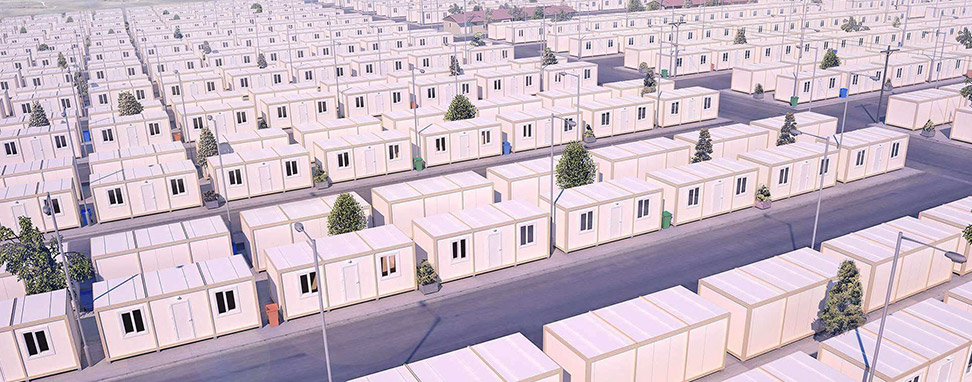Construction Quality: The quality of the initial modifications and construction plays a significant role in determining the lifespan of a container house. If the containers are structurally reinforced, properly sealed, and insulated, they are more likely to last longer.

Climate and Environment: The local climate and environmental conditions can impact the lifespan of a container house. Harsh weather conditions, such as high humidity, saltwater exposure, extreme temperatures, and frequent severe storms, can accelerate wear and tear on the containers.
Maintenance: Regular maintenance is crucial for extending the lifespan of a metal container house. This includes addressing rust or corrosion, ensuring proper insulation and sealing, and promptly fixing any issues that arise.
Foundation and Site Preparation: The quality of the foundation and site preparation can influence the stability and longevity of the container house. Properly constructed foundations help prevent settling and structural issues.
Modifications: The extent of modifications made to the containers can impact their structural integrity and overall lifespan. Careful consideration of modifications and their potential impact on the containers is important.
Material Quality: Some containers are made from higher-quality steel, which can affect their durability and resistance to rust and corrosion. Newer containers might be made from Corten steel, which is designed to resist corrosion.
Insulation and Sealing: Effective insulation and sealing help protect the containers from moisture, which can contribute to rust and corrosion over time.
Usage Intensity: The frequency of use and occupancy can also affect the lifespan. A container house used as a primary residence might experience less wear and tear compared to one used for frequent rentals or as a vacation home.
Considering these factors, a well-designed and well-maintained metal container house could have a lifespan similar to that of traditional homes, which can be several decades or more. However, it's important to note that container house construction is still a relatively new concept, and long-term data on the lifespan of container houses may not be as extensive as that of traditional homes.








